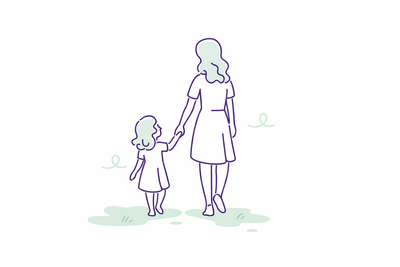
I’d like an English babysitter for my kids, but I don’t know if they’ll accept it. What can I do?”.
I get this question almost every day, and this is the most honest way I can answer: if you don’t make a big deal of it, your children won’t care. For children, a language is not just a language, it’s an intrinsic trait of somebody’s personality, like blond hair, green eyes, or dark skin. They won’t question the language, they’ll connect with the person, so as long as the babysitter can get to their heart, their mind won’t care if they don’t understand her.
Familiarising your children with another language is an amazing gift for them, and if you have the possibility to, don’t think about it twice, go for it! If you feel relaxed about your decision, about the person you chose, your children will be fine, too.
Younger children might need a little bit of help, the first time you might want to stay with them a few minutes while showing the babysitter their favourite toys; I usually liked to stay in the house the first day, and let my kids know they could come to me for anything (although, I promise you, if the babysitter was capable, they would never need me).
Older children might have questions before she comes: keep the conversation positive, don’t say, “This babysitter doesn’t speak English, but you’ll have a lot of fun playing with her”; say, “Her name is Maria, she’s got brown hair, she speaks Spanish and you’ll have a lot of fun playing with her”.
If they worry about not being able to communicate or her not understanding them, don’t say “Well, but you can try and make an effort, you know some words in Spanish”; instead, say, “No worries, you can speak English, she’ll understand you… and you can also use gestures. Would you like to practice with me? Ok, ask me for a glass of water without using words…”.
If they worry about not understanding her, don’t say, “Don’t be silly, of course you’ll understand her, you’ll see, it’s easy”; say, instead, “Of course, it’s a different language, at first you might not understand everything she says, but she is really really good and she’ll find a way to communicate with you even if you don’t understand her”.
The way we parents face new situations is a model for the way our children will face them, too. Keep the conversation positive, find creative approaches to reassure your kids without undermining their emotions, and above all trust in them and believe that everything will be great!
PS. If you want to read more about raising kids with more than one language, you can find lots of articles in the “Multilingual” category in the INDEX at the top. If you have questions, write them in the comments and I’ll reply asap!
































